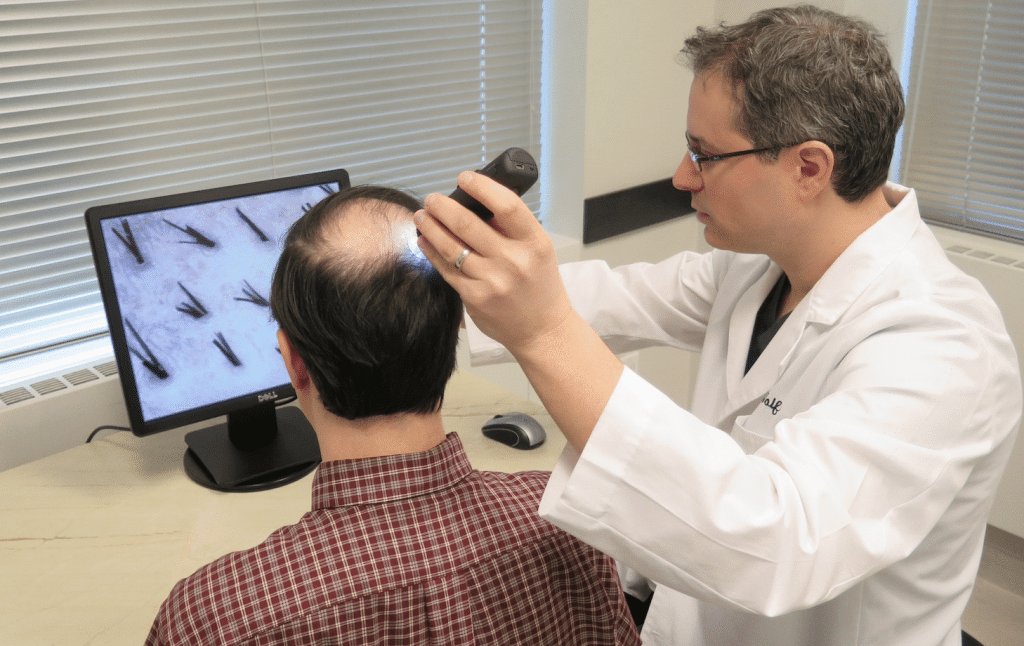Hair transplants have become increasingly popular as a solution for baldness and thinning hair. While most people focus on the techniques used or the reputation of the clinic, many are unaware that various unexpected factors can impact the outcome of their procedure. Understanding these elements can significantly influence your satisfaction with the results.
Hair transplant techniques and methods
The method used for the hair transplant also affects the success rate. Two popular techniques are Follicular Unit Extraction (FUE) and Follicular Unit Transplantation (FUT). Each method has its own set of advantages and disadvantages, ranging from scarring to recovery time. To learn more about other hair loss concerns, consider reading about creatine and hair loss.
While FUE involves extracting individual follicles, FUT involves removing a strip of skin which is then dissected into grafts. Understanding these techniques helps you choose the one that best suits your needs and expectations.
Graft handling and care
The way grafts are handled during the procedure is another vital factor. Grafts must be kept moist and at an appropriate temperature to maintain their viability. Proper handling ensures that they remain intact and free from damage throughout the transplantation process.
If the grafts dry out or are damaged, even a skilled surgeon won’t be able to salvage them, resulting in poor or incomplete coverage in the transplanted area.
The importance of surgeon skill
One critical factor in determining hair transplant success is the skill of the surgeon. Experienced surgeons know how to make precise incisions and ensure that grafts are placed naturally. This expertise can make a significant difference in the final appearance of transplanted hair.
A good surgeon also understands how to handle different hair qualities and characteristics, tailoring the approach based on individual needs. Poor technique during this phase can lead to unnatural-looking results, so choosing a qualified professional is paramount.
Hair quality and characteristics
The type of hair you have plays a vital role in how well it responds to transplantation. Factors like thickness, color, and curliness can all affect the final outcome. For example, curly hair tends to provide more coverage per graft compared to straight hair due to its volume and texture.
Additionally, the density of hair in the donor area impacts overall success. Those with thicker, denser hair in the donor region will likely see better results, as there is more hair available for transplantation.
Health and medical conditions
Your overall health and existing medical conditions can significantly affect hair transplant outcomes. Conditions such as diabetes and heart disease can interfere with healing processes, making postoperative recovery more challenging.
Medications used to manage these conditions may also influence the growth of newly transplanted hair. Discussing your medical history with your surgeon before undergoing the procedure is crucial to minimize risks and achieve optimal results. This is where informative platforms like GoodLife Clinic can provide valuable resources, helping patients understand the potential impacts of their health on the procedure and recovery process.
Postoperative care
Proper postoperative care is essential for a successful recovery and long-term satisfaction with hair transplant results. Following the surgeon’s advice about washing your scalp, avoiding direct sunlight, and not touching the grafted areas can prevent infections and promote healthy hair growth.
Ignoring these guidelines can jeopardize the entire process, leading to complications such as graft failure or uneven hair distribution.
Genetics
Genetics undoubtedly play a major role in hair transplant success. Your genetic makeup dictates how prone you are to hair loss in the first place. Therefore, understanding your family history can give insight into what kind of results to expect from a hair transplant.
Even after a successful transplant, genetic factors can cause continued hair loss around the transplanted area. This makes ongoing treatment and care essential to maintain the look you desire.
Lifestyle factors : smoking, diet, stress
Various lifestyle choices can compromise or enhance the effectiveness of hair transplantation. Smoking is particularly detrimental as it restricts blood flow to the scalp, impeding the healing process. Quitting smoking before and after the procedure can significantly improve outcomes.
Diet also matters; consuming nutrient-rich foods supports hair health and recovery. Stress management is equally important, as high stress levels can hinder healing and promote further hair loss.
- Quit smoking prior to the surgery and refrain from smoking afterward.
- Maintain a balanced diet rich in vitamins and minerals.
- Engage in activities that help manage stress effectively.
Patient expectations
Another often overlooked factor is patient expectations. Unrealistic expectations can lead to dissatisfaction, even if the procedure is technically successful. It’s essential to have a clear and realistic discussion with your surgeon about what the transplant can and cannot achieve.
Understanding that hair transplants may take several months to show visible results can help set proper expectations. Knowing that multiple sessions might be required for full coverage will also prepare you for the journey ahead.
Weather conditions
Believe it or not, weather can affect the outcome of a hair transplant. High humidity can lead to sweating, which can impact graft adherence and increase the risk of infection. Extremely cold weather can reduce blood circulation to the scalp, prolonging the healing process.
Planning your surgery during a period of moderate, stable weather can contribute to smoother recovery and improved results. Consider frequent check-ups with your surgeon if you’re undergoing the procedure in less-than-ideal climatic conditions.
In summary
When planning a hair transplant, it’s essential to consider a multitude of factors beyond just the technical aspects of the procedure. From the artistry of the surgeon’s skill to environmental influences like weather, each element can profoundly impact your experience and results. Stay informed, communicate openly with your healthcare provider, and be prepared to follow through with both preoperative and postoperative care to ensure a successful outcome.
